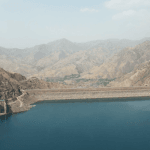The European Union will invest €101.2 million for the latest projects under the LIFE programme for the Environment and Climate Action, the European Commission said on 17 February.
The funding will support 10 large-scale environment and climate projects in nine Member States, helping Europe’s transition to a sustainable economy and climate neutrality. Theseprojects are located in Cyprus, Estonia, France, Greece, Ireland, Latvia, Slovakia, Czechia and Spain.
European Commission Executive Vice-President Frans Timmermans noted that the European Green Deal is about improving the well-being and prosperity of our citizens, while protecting nature and the climate. “LIFE projects have played an important role for many years and have a big impact on the ground. With today’s €100 million investment we will help to preserve precious natural habitats, keep the air clean, and cut pollution in many lakes and rivers in Europe,” he said.
For his part, Environment, Oceans and Fisheries Commissioner Virginijus Sinkevičius said LIFE integrated projects enable Member States’ authorities to make a real difference to the environment and people’s lives. “The projects will help Member States to conserve nature, improve air and water quality, and make the economy greener. This will improve our resilience to the changing climate,” he said.
According to the Commission, integrated projects improve citizens’ quality of life by helping Member States comply with EU legislation in six areas: nature, water, air, waste, climate change mitigation and climate change adaptation. They support implementation of environmental and climate legislation in a coordinated manner and on a large territorial scale, leveraging funding from other EU sources, national and regional actors and private investors.
The LIFE investment is set to mobilise over €6.5 billion of complementary funds, as Member States can also make use of other EU funding sources, including agricultural, regional and structural funds, Horizon 2020, as well as national funds and private sector investment, the Commission said, adding that the large-scale projects will support the European Green Deal and the EU’s ambition of becoming the world’s first climate-neutral continent by 2050. They will help to restore and conserve ecosystems and species we all depend on, move towards a circular economy, improve air and water quality, boost sustainable finance and increase climate resilience in Europe.
Nature conservation: Integrated projects in Estonia, Ireland and Cyprus will help to conserve Europe’s nature and improve the management of the EU Natura 2000 network of protected areas, the Commission said, adding that many important habitats and species will benefit, from forests, farmlands, grasslands, coastal areas and peatlands to pollinators. These habitats also serve as valuable carbon sinks.
Regarding waste management, a project in Greece will promote waste prevention and re-use, reducing the amount of municipal waste going to landfill. New waste indicators and standards will be developed to help build the circular economy.
Improving air quality, LIFE funding will assist Slovakia in complying with EU directives on air quality, reducing the population’s exposure to harmful air pollutants. Neighbouring Czechia, affected by similar air quality problems, will also benefit.
Regarding water, integrated projects working at river basin-scale will protect and improve water quality in Ireland and Latvia’s rivers and lakes, enabling the countries to meet their obligations under the EU Water Framework Directive.
Climate change adaptation
LIFE funding will also support increased resilience to climate change. Projects will integrate climate change adaptation into planning and other policy areas in Spain as well as building adaptation capacity in France using nature-based solutions, the Commission said.
Also in France, an integrated project will help bridge significant knowledge gaps in this area and bring green financial products into the mainstream.
The LIFE programme is the EU’s funding instrument for the environment and climate action. It has been running since 1992 and has co-financed more than 5,400 projects across the EU and in third countries. At any given moment some 1,100 projects are in progress. The budget for 2014-2020 is set at €3.4 billion in current prices. LIFE integrated projects were introduced in 2014 to help Member States comply with key EU environmental, nature and climate legislation. For the next long-term EU budget for 2021-2027, the Commission is proposing to increase funding by almost 60% for LIFE.
EU invests more than €100 mln in new LIFE Programme for green projects
EPA-EFE/MARTIN DIVISEK
The city center in Bratislava, Slovakia, 20 February 2020. LIFE funding will assist Slovakia in complying with EU directives on air quality, reducing the population's exposure to harmful air pollutants.
- Advertisement -
- Advertisement -






